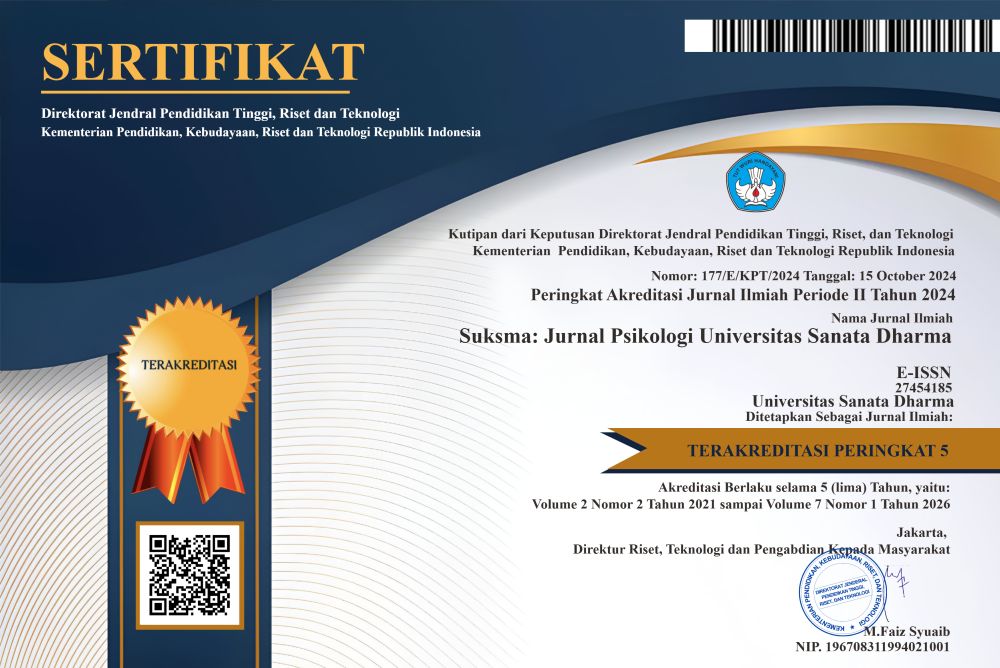Analisis Tematik Kebahagiaan pada Milenial Kelas Menengah
(1) Faculty of Psychology, Sanata Dharma University
(*) Corresponding Author
Abstract
This current study aimed to map the experience of happiness among middle-class millennials in Indonesia. Data were collected through the written stories and experiences of 37 subjects aged 19-20 years. Using thematic analysis with constructionist epistemology, this research found four major themes across the stories. Subjects portrayed that happiness is a condition in which the subjects: (1) Enjoy the moment, (2) Subjectively, (3) Support from others, and (4) Self-worth. These findings have implications for research models on happiness that can be directed at welfare issues at various levels, namely individual, interpersonal, organizational, and communal which are interconnected and influence each other.
Keywords
Full Text:
PDFReferences
Alvara Research Center. (2016). Indonesia 2020: The urban middle-class millenials. Alvara.
Baumeister, R. F., Bratslavsky, E., Finkenauer, C., & Vohs, K. D. (2001). Bad is Stronger than Good. Review of General Psychology, 5(4), 323–370. https://doi.org/10.1037/1089-2680.5.4.323
Cabanas, A. & Illouz, E. (2019). Manufacturing happy citizens: How the sciennce and industry of happiness control our lives. Polity.
Davies, W. (2015). The happiness industry: How the government and big business sold us well-being. Verso.
Frankl, V.E. (1969/2014). The will to meaning: Foundations and applications of logotherapy. Penguin.
Howe, N. & Strauss, W. (2000). Millenials rising: The next great generation. New York: Vintage.
IDN Research Institue. (2019). Indonesia millenial report 2019. IDN.
McGuirk, L., Kuppens, P., Kingston, R., & Bastian, B. (2018). Does a culture of happiness increase rumination over failure? Emotion, 18, 755 – 764. doi: 10.1037/emo0000322
Peterson, C. & Seligman, M.E.P. (2004). Character strengths and virtues. Oxford University Press.
Prilleltensky, I. (2011). Wellness as fairness. American Journal of Community Psychology, 49(1–2), 1–21. doi:10.1007/s10464-011-9448-8.
Prilleltensky, I., & Nelson, G. (2002). Doing psychology critically: Making a difference in diverse settings. New York, NY: Palgrave.
Ratner, C. (2019). Neoliberal psychology. Springer.
Schueller, S. M. (2009). Promoting wellness: Integrating community and positive psychology. Journal of Community Psychology, 37(7), 922–937.
Segal, L. (2017). The radical happiness: Moments of collective joy. Verso.
Sen, A. (2009). The idea of justice. Harvard University Press.
Willig, C. (2013). Introducing qualitative research in psychology. Open University Press.
Yang, J. (2016). The politics and regulation of anger in urban China. Culture, Medicine, Psychiatry, 40, 100–123. https://doi.org/10.1007/s11013-015-9476-1
DOI: https://doi.org/10.24071/suksma.v3i2.4956
Refbacks
- There are currently no refbacks.


